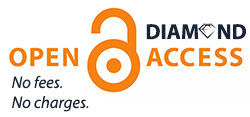Rischi psicosociali nel lavoro degli infermieri di sala operatoria: studio osservazionale trasversale condotto con il copenhagen psychosocial questionnaire
DOI:
https://doi.org/10.54103/dn/22688Parole chiave:
rischi psicosociali, infermiere, sala operatoria, copenaghen psychosocial questionnaireAbstract
BACKGROUND
Lo stress lavoro correlato viene definito come un insieme di reazioni dei lavoratori, quando vengono fatte loro delle richieste o subiscono pressioni che non coincidono con le loro conoscenze, abilità e li sfidano nella loro capacità di affrontarle. Principali effetti organizzativi negativi: la riduzione delle prestazioni, aumento dell'assenteismo e dei tassi di infortunio, burn out, intenzione di lasciare prematuramente la professione.
SCOPO
Misurare lo stress lavoro correlato dovuto a fattori psicosociali tra gli infermieri di sala operatoria usando il COPSOQ II short validato in italiano.
METODI
È stato condotto uno studio osservazionale trasversale su un campione di Infermieri delle sale operatorie di una fra le maggiori strutture sanitarie lombarde. È stato somministrato online (Piattaforma Forms) e compilato in modo anonimo dal 7 ottobre 2023 al 10 novembre 2023.
RISULTATI
La maggioranza degli infermieri non percepisce di essere esposta ad alto rischio psicosociale (solo il 16,6% delle risposte mostra una media nel range di alto rischio). Sostanziale consenso degli infermieri di percezione di rischio psicosociale riguarda solo la dimensione Work Pace per entrambi gli item (m=6,08; M=3 e 3 e IQR 1 e 1,25).
CONCLUSIONI
Il COPSOQ è utile nel monitorare un insieme di variabili che possono effettivamente creare difficoltà al singolo infermiere o al gruppo infermieristico. Un clima psicosociale sicuro può essere correlato a una miglior soddisfazione lavorativa.
Downloads
Riferimenti bibliografici
1. Peter KA, Golz C, Bürgin RA, Nübling M, Voirol C, Zürcher SJ, Hahn S. Assessing the psychosocial work environment in the health care setting: translation and psychometric testing of the French and Italian Copenhagen Psychosocial Questionnaires (COPSOQ) in a large sample of health professionals in Switzerland. BMC Health Serv Res. 2022 May 6;22(1):608. doi: 10.1186/s12913-022-07924-4. PMID: 35524327; PMCID: PMC9074249.
2. Li N, Zhang L, Li X, Lu Q. The influence of operating room nurses' job stress on burnout and organizational commitment: The moderating effect of over-commitment. J Adv Nurs. 2021 Apr;77(4):1772-1782. doi: 10.1111/jan.14725. Epub 2020 Dec 10. PMID: 33305491.
3. Setti I, D’Errico A, Di Cuonzo D, et al. Validation and psychometric properties of the italian Copenhagen Psychosocial Questionnaire II-short version. 2017. BPA Applied Psychology Bulletin. Available from: https://test-bpa.giuntipsy.com/journalarticles/validation-and-psychometric-properties-of-the-italian-copenhagen-psychosocial-questionnaire-ii-short-version/.
4. Teymoori E, Zareiyan A, Babajani-Vafsi S, Laripour R. Viewpoint of operating room nurses about factors associated with the occupational burnout: A qualitative study. Front Psychol. 2022 Aug 11;13:947189. doi: 10.3389/fpsyg.2022.947189. PMID: 36033007; PMCID: PMC9403988.
5. Gu M, Kim YS, Sok S. Factors Influencing Turnover Intention Among Operating Room Nurses in South Korea. J Nurs Res. 2021 Dec 13;30(1):e192. doi: 10.1097/jnr.0000000000000467. PMID: 34897201.
6. Elfering A, Grebner S, Leitner M, Hirschmüller A, Kubosch EJ, Baur H. Quantitative work demands, emotional demands, and cognitive stress symptoms in surgery nurses. Psychol Health Med. 2017 Jun;22(5):604-610. doi: 10.1080/13548506.2016.1200731. Epub 2016 Jun 21. PMID: 27326467.
7. Çelikkalp Ü, Sayilan AA. Qualitative determination of occupational risks among operating room nurses. Aust J Adv Nurs [Internet]. 2021 Feb. 4 [cited 2024 Nov. 10];38(1). Available from: https://www.ajan.com.au/index.php/AJAN/article/view/104.
8. Wang J, Mao F, Wu L, Yang X, Zhang X, Sun Y, Huang Y, Lu YE, Luan X, Cao F. Work-related potential traumatic events and job burnout among operating room nurses: Independent effect, cumulative risk, and latent class approaches. J Adv Nurs. 2022 Jul;78(7):2042-2054. doi: 10.1111/jan.15114. Epub 2021 Nov 30. PMID: 34850448.
9. Lee EY, Kim KJ, Ko S, Song EK. Communication competence and resilience are modifiable factors for burnout of operating room nurses in South Korea. BMC Nurs. 2022 Jul 27;21(1):203. doi: 10.1186/s12912-022-00985-0. PMID: 35897026; PMCID: PMC9327268.
10. COPSOQ II. The scales of the SHORT COPSOQ II questionnaire. 2007. Available from: https://nfa.dk/media/mfofbzqv/13_scales-of-the-short-copsoq-ii-questionnaire.pdf.
11. Bagnasco A, Alvaro R, Lancia L, et al. Studio osservazionale dell’assistenza infermieristica domiciliare in Italia-Aidomus-it: condizione lavorativa, cure mancate e le esperienze degli assistiti. L’Infermiere 2023, 60:4, e190– e208 - DOI: 10.57659/SSI.2023.016
12. Wagner A, Nübling M, Hammer A, Manser T, Rieger MA; WorkSafeMed Consortium. Comparing perceived psychosocial working conditions of nurses and physicians in two university hospitals in Germany with other German professionals - feasibility of scale conversion between two versions of the German Copenhagen Psychosocial Questionnaire (COPSOQ). J Occup Med Toxicol. 2020 Aug 20;15:26. doi: 10.1186/s12995-020-00277-w. PMID: 32843890; PMCID: PMC7439506.
13. Sousa YG, Oliveira JSA, Chaves AEP, Clementino FS, Araújo MS, Medeiros SM. Psychic burden development related to nursing work in Psychosocial Care Centers. Rev Bras Enferm. 2021 Jan 20;74(suppl 3):e20200114. English, Portuguese. doi: 10.1590/0034-7167-2020-0114. PMID: 33503206.
14. Burr H, Berthelsen H, Moncada S, Nübling M, Dupret E, Demiral Y, Oudyk J, Kristensen TS, Llorens C, Navarro A, Lincke HJ, Bocéréan C, Sahan C, Smith P, Pohrt A; international COPSOQ Network. The Third Version of the Copenhagen Psychosocial Questionnaire. Saf Health Work. 2019 Dec;10(4):482-503. doi: 10.1016/j.shaw.2019.10.002. Epub 2019 Nov 6. PMID: 31890332; PMCID: PMC6933167.
15. COPSOQ - network.org. Licence, Guidelines & e Questionnarie (online). Consultato il 13 settembre 2023. Available from: https://www.copsoq-network.org/.
16. Pousa PCP, Lucca SR. Psychosocial factors in nursing work and occupational risks: a systematic review. Rev Bras Enferm. 2021 Jan 20;74(suppl 3):e20200198. English, Portuguese. doi: 10.1590/0034-7167-2020-0198. PMID: 33503207.
17. Zito M. I rischi psicosociali nelle professioni sanitarie durante (e dopo) la pandemia da COVID-19. LLC labour law community. 2021. Available from: https://www.labourlawcommunity.org/dialoghi/i-rischi-psicosociali-nelle-professioni-sanitarie-durante-e-dopo-la-pandemia-da-covid-19/.
18. Zurlo MC, Vallone F, Smith AP. Work-family conflict and psychophysical health conditions of nurses: Gender differences and moderating variables. Jpn J Nurs Sci. 2020 Jul;17(3):e12324. doi: 10.1111/jjns.12324. Epub 2020 Jan 12. PMID: 31930657.
Dowloads
Pubblicato
Come citare
Fascicolo
Sezione
Licenza
Copyright (c) 2025 Fortunato Durante, Loredana Pasquot

Questo lavoro è fornito con la licenza Creative Commons Attribuzione - Non commerciale - Non opere derivate 4.0 Internazionale.
Accettato 2024-11-08
Pubblicato 2025-01-31

















